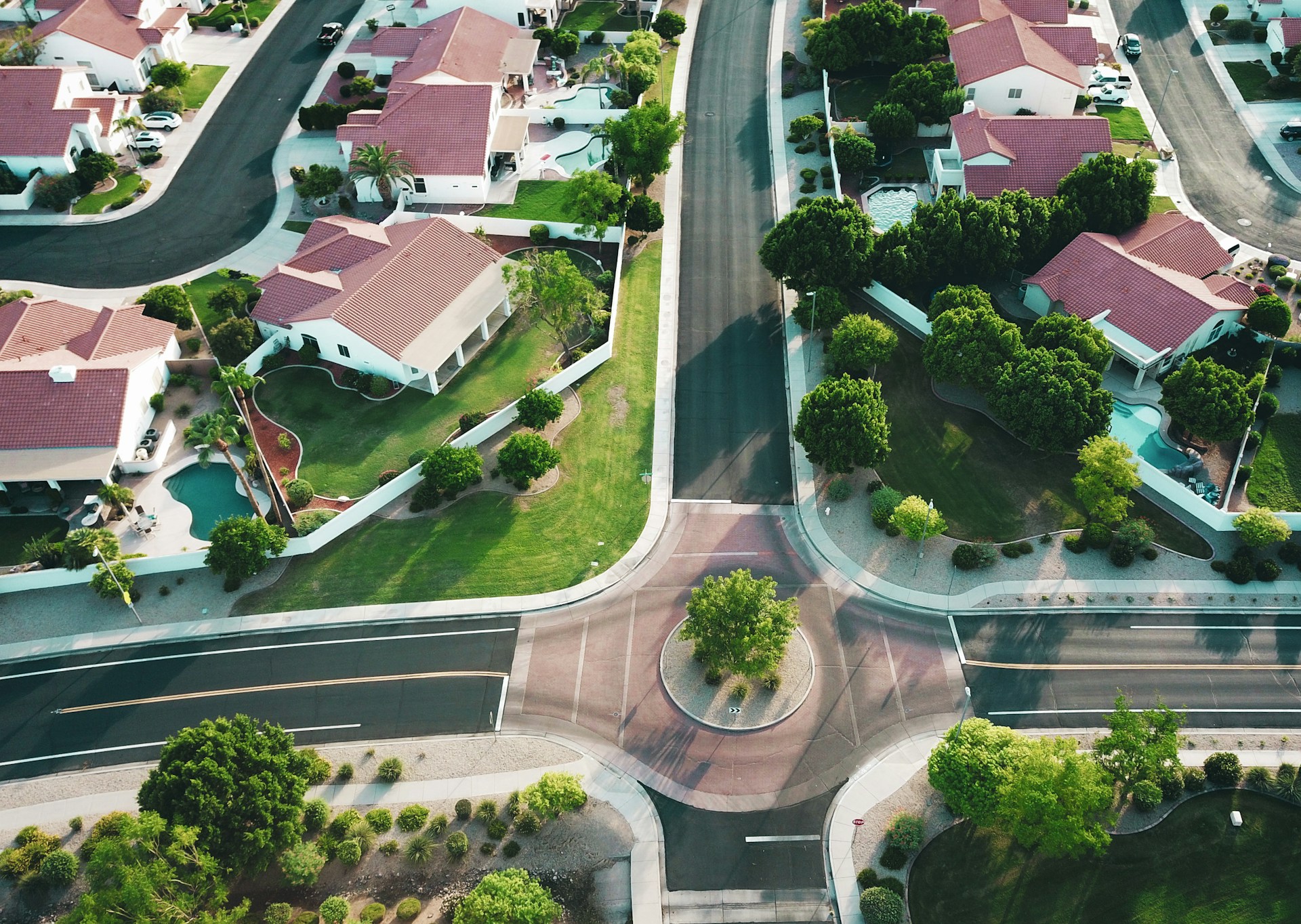What strategies can real estate professionals employ to enhance the sustainability of their projects?

In this era of heightened environmental consciousness, real estate professionals globally are under increasing pressure to demonstrate their commitment to sustainability. More than ever, builders, developers, and property managers are called upon to help reduce the carbon footprint of the built environment. The task is not merely to erect buildings, but to ensure that these structures meet stringent energy, water, and waste efficiency standards. This article will delve into various strategies that you can implement to deliver on this mandate, with a focus on sustainable construction practices, green building design, efficient water management, environmental-friendly business practices, and impactful commercial property management.
Incorporating Sustainable Construction Practices
Sustainable construction practices are crucial in reducing the environmental impact of your real estate project. They not only help to mitigate climate change by reducing carbon emissions but also drive cost savings through efficient use of resources.
Avez-vous vu cela : How to leverage virtual reality for remote real estate investment site visits and evaluations?
One approach is to leverage recycled materials in your construction projects. Recycled steel, for instance, can replace traditionally used materials, significantly cutting down on carbon emissions from the manufacturing process. Similarly, the use of recycled concrete or bio-based materials can lead to fewer waste products and lower environmental degradation.
Equally important is the proper management of construction waste, to minimize disposal in landfills and consequent environmental pollution. This could involve recycling or re-purposing waste, or even better, implementing strategies to prevent waste generation in the first place.
Cela peut vous intéresser : How can real estate developments be designed to support the well-being of residents in high-density urban areas?
Adhering to Green Building Design
Green building design, another cornerstone of sustainable real estate, focuses on creating structures that are energy efficient, healthy for occupants, and have a minimal impact on the environment. This is achieved through strategies such as incorporating renewable energy sources, improving insulation, and optimizing natural light.
For instance, integrating solar panels or wind turbines into the building’s design can significantly reduce dependence on grid power, leading to lower greenhouse gas emissions. A well-insulated building, on the other hand, retains heat during winter and stays cool during summer, thereby minimizing the need for energy-intensive heating and cooling systems.
Another strategy is to design buildings in a way that maximizes the use of natural light, thereby reducing the need for artificial lighting. This not only conserves energy but also creates a more pleasant and productive environment for inhabitants.
Implementing Efficient Water Management
Water is a precious resource that needs to be conserved. Implementing efficient water management practices in your real estate project can significantly reduce water consumption, contribute to water conservation efforts, and lead to cost savings.
This can be achieved through simple strategies such as installing low-flow faucets and toilets, which use less water per use than the conventional options. Another strategy is to use rainwater harvesting systems to collect and store rainwater for non-drinking purposes such as toilet flushing or irrigation.
Moreover, landscaping choices can also significantly impact water consumption. Opting for native or drought-tolerant plants can reduce the need for regular watering.
Adopting Environmental-friendly Business Practices
Beyond the physical attributes of a building, how you conduct your real estate business can also contribute to your sustainability efforts. This could involve choosing suppliers who are committed to sustainable practices, or even influencing your tenants to go green.
For instance, you could choose to only work with suppliers who use environmentally-friendly packaging, or who are committed to reducing their own carbon footprints. You could also offer incentives to your tenants who demonstrate a commitment to reducing energy and water use or recycling.
Introducing Sustainable Commercial Property Management
Sustainable property management is a vital component of a green real estate business. As a property manager, you can introduce various energy and water-saving measures, encourage recycling, and prioritize green cleaning products. This can help to not only reduce the environmental impact of your commercial properties but also enhance their appeal to eco-conscious tenants.
For instance, you could monitor energy use across your properties, identify areas of wastage, and introduce measures to reduce this. Similarly, you could ensure that all waste from the property is properly sorted and recycled. Opting for green cleaning products can also minimize the environmental impact of maintaining your properties.
With the right strategies and commitment, you as a real estate professional can play a significant role in protecting our planet. By incorporating sustainable practices into your projects, you can not only reduce their environmental impact but also make them more attractive to the ever-increasing number of eco-conscious clients and tenants.
Embracing Renewable Energy Sources
As a real estate professional, leveraging renewable energy sources such as solar panels and wind turbines is an effective strategy for enhancing the sustainability of your projects. This approach can significantly cut down on greenhouse gas emissions and make a considerable contribution to combating climate change.
Solar panels, for instance, can be incorporated onto building rooftops or facades to generate clean energy and reduce reliance on conventional grid power. This not only leads to a reduction in energy consumption but also results in substantial cost savings in the long run.
Wind turbines, although more suitable for larger properties or real estate developments, can also be an excellent source of renewable energy. More developers are exploring this option, as it is an efficient way of producing energy without contributing to air pollution.
Moreover, you may consider using energy-efficient appliances and lighting solutions in your properties. Such additions can help to further decrease energy consumption and enhance energy efficiency. Keeping tabs on the latest technological advancements can help inform your choices and allow you to offer the most up-to-date and eco-friendly amenities to your clients and tenants.
Prioritizing Indoor Air Quality
A critical, yet often overlooked, factor in sustainable real estate is indoor air quality. The air quality inside a building has a significant influence on the health and well-being of the occupants, thus, it is essential to incorporate practices that enhance it.
Choosing construction materials that emit low or no volatile organic compounds (VOCs) is a good start. VOCs are harmful chemicals released from certain materials and products that contaminate indoor air. Using low-VOC or VOC-free paints, adhesives, and other building materials can contribute to better air quality.
Proper ventilation is another essential aspect. Good ventilation systems ensure adequate fresh air circulation, remove pollutants, and help maintain a comfortable and healthy living or working environment.
Lastly, incorporating indoor plants can improve air quality by naturally filtering the air and absorbing harmful pollutants. This not only contributes to healthier indoor environments but also adds to the aesthetics of your properties.
Conclusion
As the global consciousness shifts towards a more sustainable approach, the real estate industry must adapt and evolve. By incorporating sustainable practices like efficient water and waste management, green building design, renewable energy usage, and mindful business practices, professionals in the real estate sector can significantly enhance the sustainability of their projects.
Real estate professionals hold a unique position to influence and expedite the shift to sustainability. By embracing these strategies, they can contribute to mitigating climate change, reducing energy consumption, improving indoor air quality, and overall, building a more sustainable future.
Moreover, green real estate projects have proven to be more appealing to an increasingly eco-friendly market. Therefore, adopting these practices can not only lead to environmental benefits but also boost market competitiveness, increase property value, and enhance tenant satisfaction. It’s a win-win scenario for real estate professionals, their clients, and the planet.
